‘A safe place’ – PCPM foundation supports a refugee centre for people fleeing Ukraine
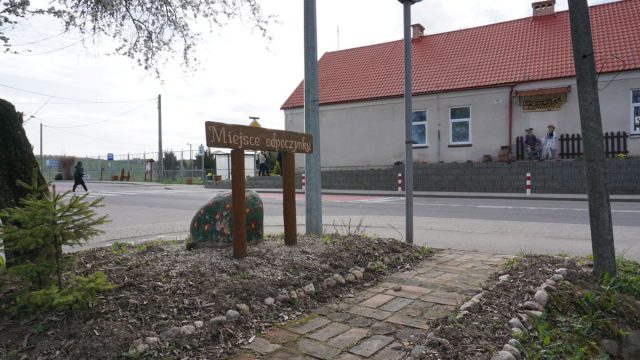
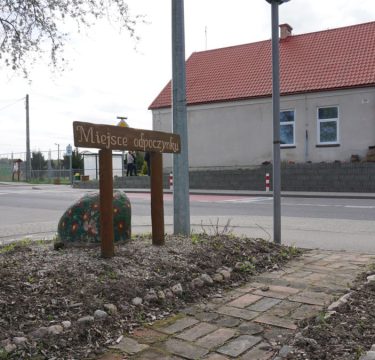
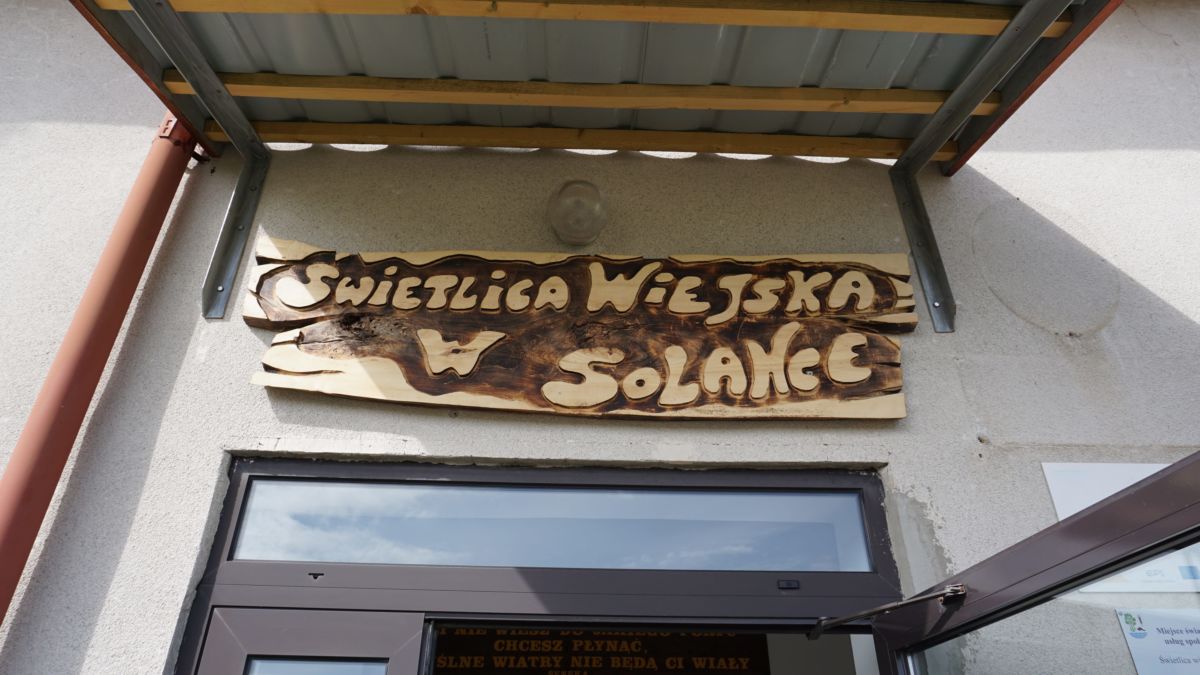
The Polish Centre for International Aid Foundation (PCPM) in cooperation with the established help point in the Kętrzyn district (north of Poland) is part of the financial aid program for refugees from Ukraine. Thanks to funding provided by an American organization – CARE, in April guests from Ukraine received financial aid which makes it easier for them to find their way in the new reality and decide whether to stay in Poland or continue their journey to other destinations abroad.
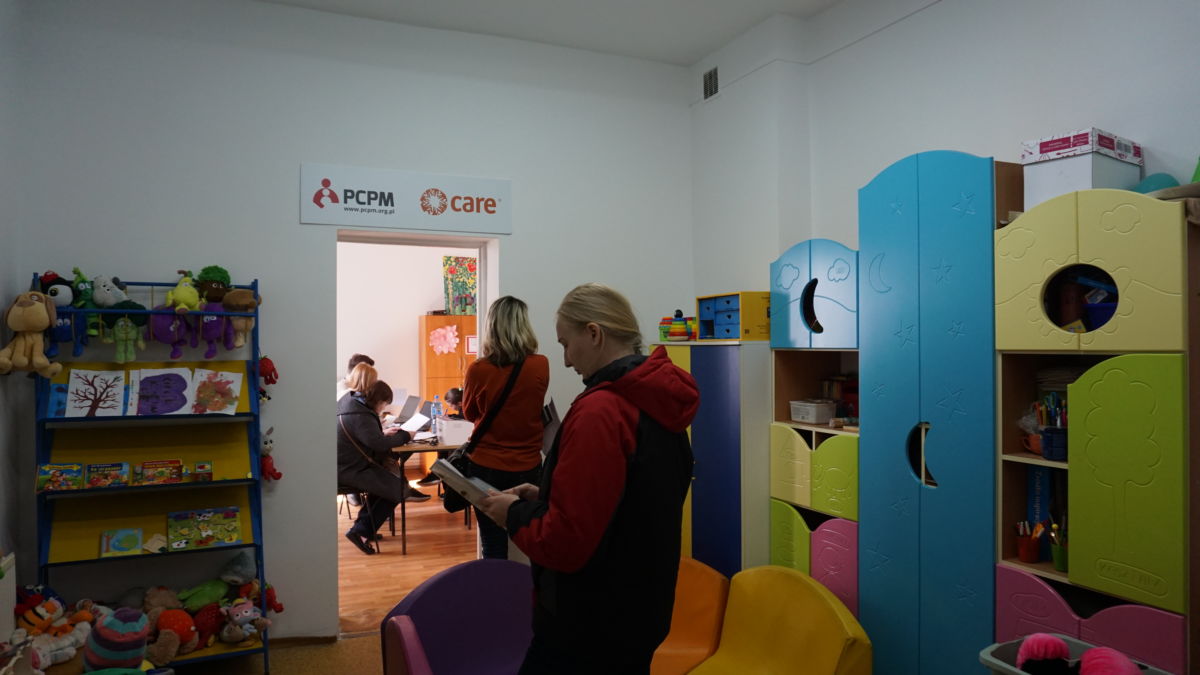
A group of women, together with the local authority of Solanka and the head representative of the Srokowo commune in northern Poland, created in a former primary school a local center for people fleeing the war in Ukraine incited by Russia. ‘It was Thursday. Already on the day of the Russian attack on Ukraine, I called a crisis management team and we agreed on the actions to be carried out by our municipal units. On the same day, we decided to prepare a facility to receive refugees’ – described Marek Olszewski, mayor of the commune of Srokowo. ‘The next day, I went to consultations with a higher regional authority. I passed the news that we would be preparing a former school building for such this purpose, and then Agnieszka Kieda, the mayor of Solanki, together with two communal councilors, began to prepare everything on their own – he added.
‘In the morning we had a meeting, and at noon we were already buying the necessary things. We had all the necessary stuff ordered on the very first day, sleeping bags, pillows, duvets – told Anna, a local councilor and the coordinator of the initiative.
Asked if the organizers of the point for refugees had any concerns regarding the challenge, the mayor of the commune of Srokowo nodded. ‘Yes, we had some. Are we going to make it? Will we be able to deliver the best possible solutions for all those people in need? Will we be able to collect the necessary equipment in due time?’ – reported Olszewski. “Unexpectedly, many people showed incredible kindness. The local forest inspectorate and the volunteer fire brigade gave us a hand and we accepted their help – he said. ‘Ordinary people offered us washing machines, refrigerators. Someone even donated us a dishwasher!’ – he noted.
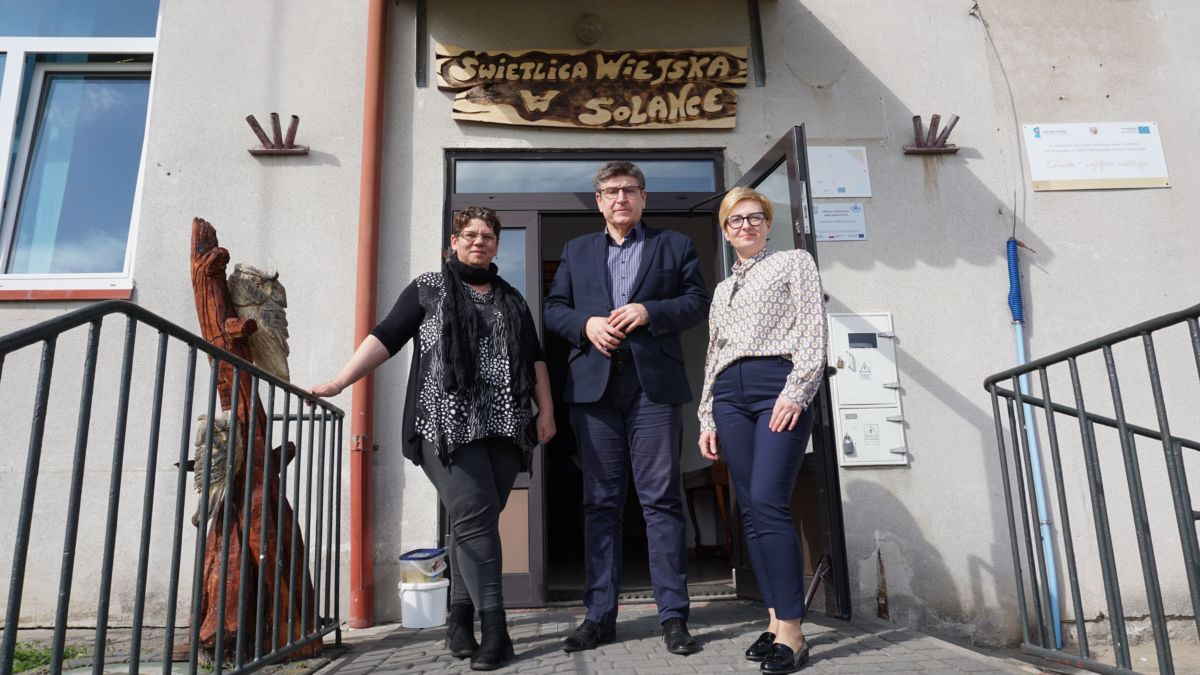
‘The community’s response has exceeded our expectations. A big +thank you+ to all those who wanted to get involved in this help. Also, many residents contributed to this place. Now the people who come here can catch a breath and relax after all those traumatizing experiences that happened to them from the Russian aggressors’- said the commune administrator.
‘Please follow me, I’ll show you how we organized it’ – proposed Eva, the coordinator of the center’s cooperation with the PCPM Foundation. ‘The needs of refugees are different. We try to create a homely atmosphere for them. I think our guests like it here’ – she assessed. ‘We, the volunteers, are here every day. We deal with problems as they appear. When the refugees arrived here for the first time, they had fear in their eyes’ – described one of the volunteers Lucyna, a nurse. ‘Mr. Maksym, a family of six, came here first. It was March 11th. He traveled four days to the Polish border from Chernihiv. First, they ended up in a refugee center in Legionowo (nearby Warsaw), but there were no more places, so they had to keep moving until they found us’ – she continued the story. ‘Maksym is a professional dental surgeon. We are currently in the process of getting all work permits. His case is at the Ministry of Health right now. We are also trying to find an apartment in the area for him and his family. Perhaps they will soon live here in Srokowo’ – she added.
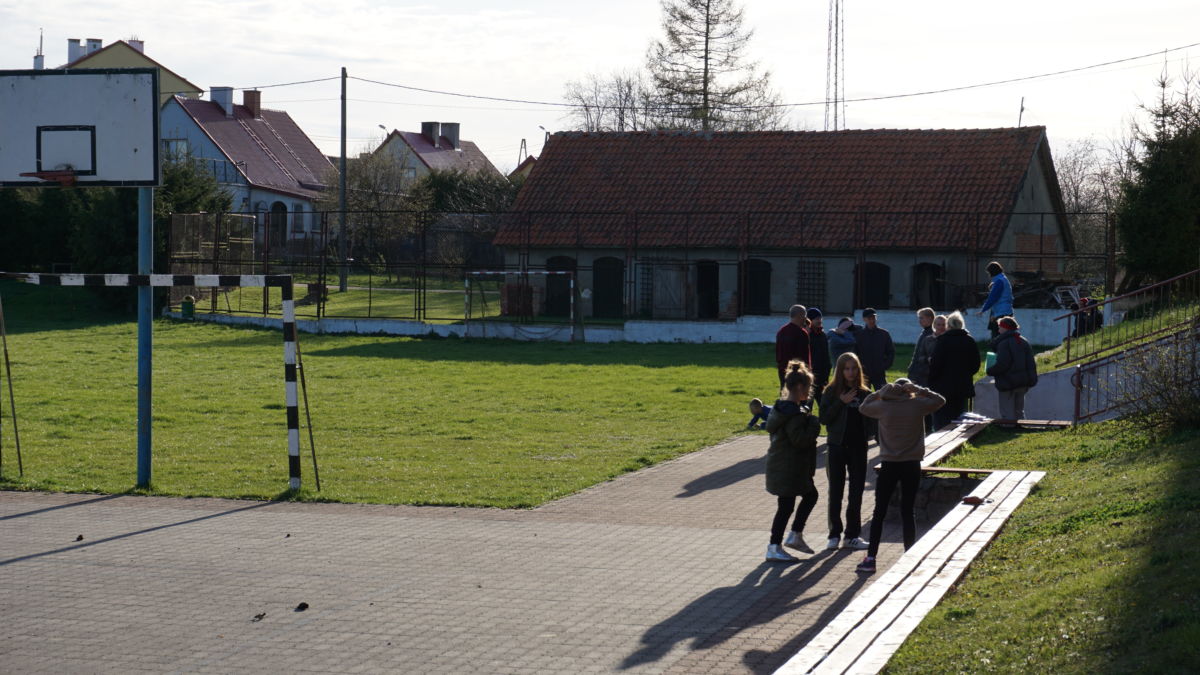
‘Arrivals are similar, refugees start with the most basic things. We give them underwear, clothes, and shower slippers, these are simple matters. Then comes the trouble – public institutions. We start arranging documents, papers, translations, and coordinating activities related to financial support’ – said Barbara, another host of the commune. ‘Now we know how to do it, but it was hard at first. We were afraid of how the officials would treat us, how we would get along with these institutions’ – she added.
Asked who the guests coming to the commune were, the volunteers mentioned several various professions. ‘We have a baker, hairdresser, lecturer from the art academy of Mariupol; there is one gentleman – a construction worker with six children’ – they reported. ‘One lady is already an independent citizen and has found a job nearby, in Węgorzewo. Our other guest – Mr. Pavel, after just two days with us, left for work in the Mrągowo town region. He was offered a job with a place to stay on a farm. He is already taking care of the formalities related to the stay in Poland’ – explained the co-managing head of the center.
One of the refugees here is Mrs. Yulia. She teaches drawing and painting to children. ‘Their drawings are full of red and black colors as if these children were pouring their war experiences onto paper’ – expressed Mrs. Milena. “Yulia came to us by bus on April 8 thanks to you (PCPM). She is a professional teacher, she worked in a school before the war. She organizes here classes for children, i.a. quilling classes.
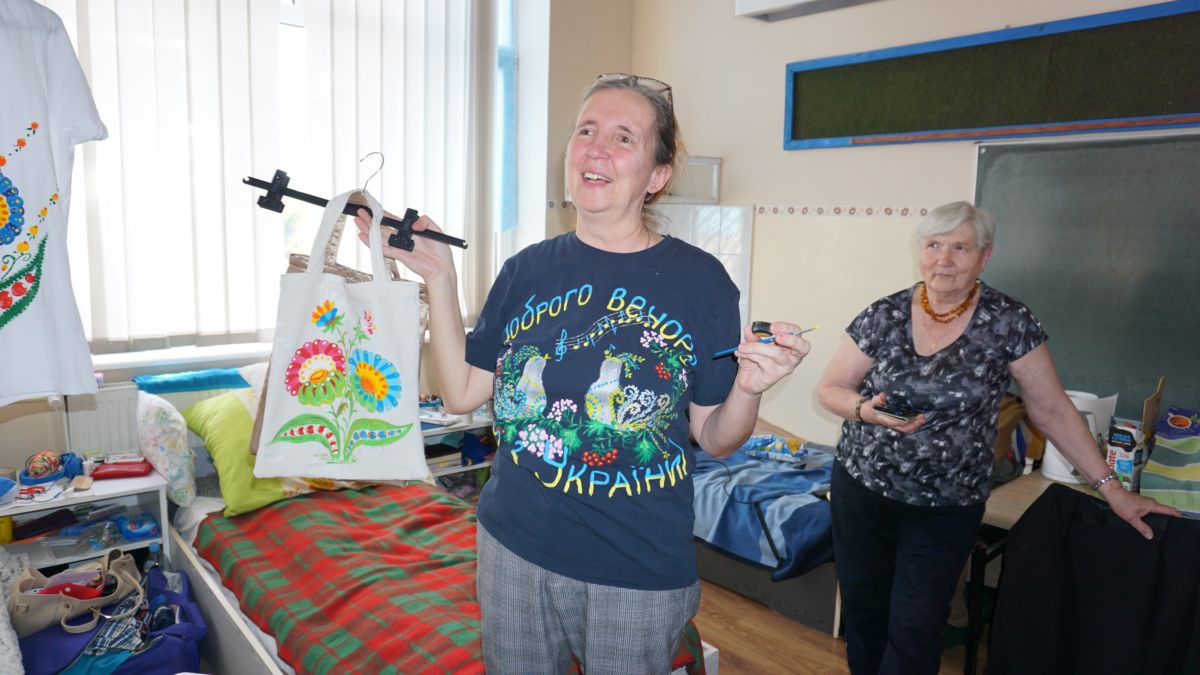
‘I didn’t know what it is until our guest from Ukraine showed it to me!’ – she confessed. ‘It’s a kind of an artistic, decorative paper rolling. She uses many materials and paints on fabrics. The children are focused on classes with this lady’ – she said.
‘This lady often has classes with our Polish children. They come here to the common room and together they make drawings and paintings, like the one you can see here – another volunteer mentioned.
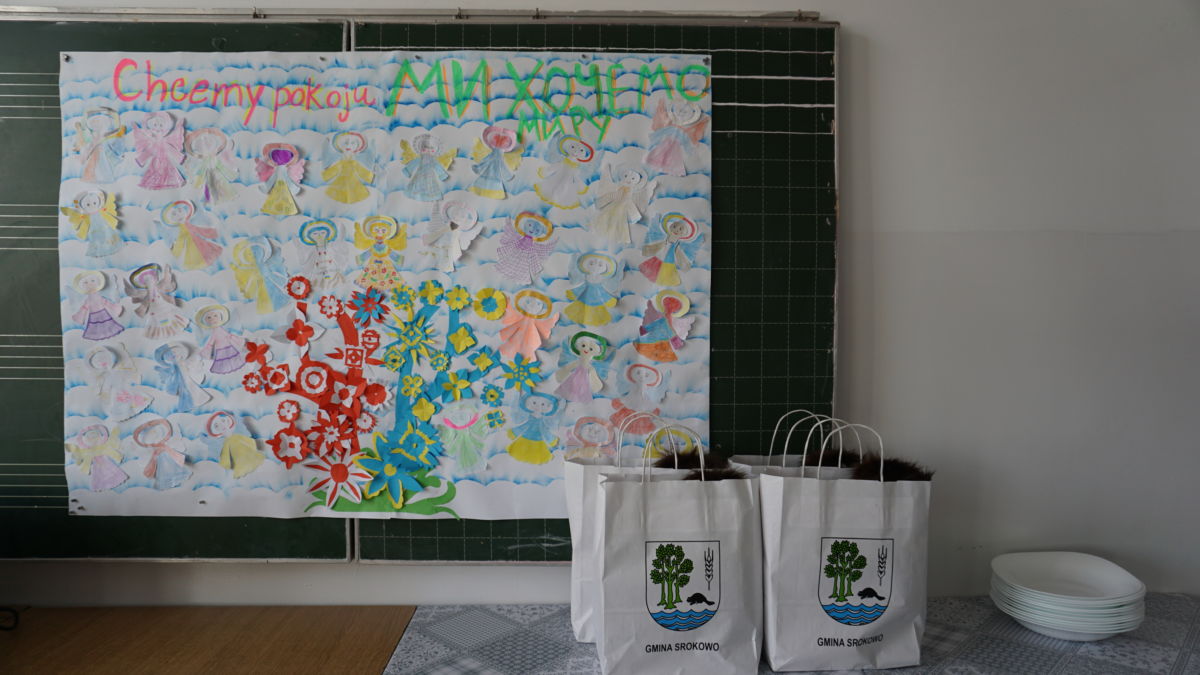
‘Currently, there are thirty-eight people in the center, and about a hundred in the entire commune. These other people are located in private households. They are supported by volunteers and ordinary people’ – explained the head of Srokowo, pointing to the challenges faced by the commune – ‘Some of the people who visit us carry the heavy burden; these people need psychological support’ – he added.
‘We are lucky enough that the lady who works with us at the social services center is a psychologist and knows the Ukrainian language’ – he added.
In the interview, Olszewski pointed out that many refugees who came to Srokowo already know that there is nowhere to come back to because their homes have been destroyed. ‘Let’s say, Mrs. Yulia is from Luhansk. She says she could only come back home if the city becomes Ukrainian again. She doesn’t want to live in Russia’. As he describes, some of the guests manage to find employment in the area, and some have already left: Prague, Munich, and London. As part of the family reuniting program, one family will soon go to Moldova, and eventually, they will go to the USA.
‘We have a specific job market, it’s just hard to find some work here. It’s not Warsaw, it’s not one of those grand cities. It’s the north (of Poland), we are poor here’ – two other volunteers explained.
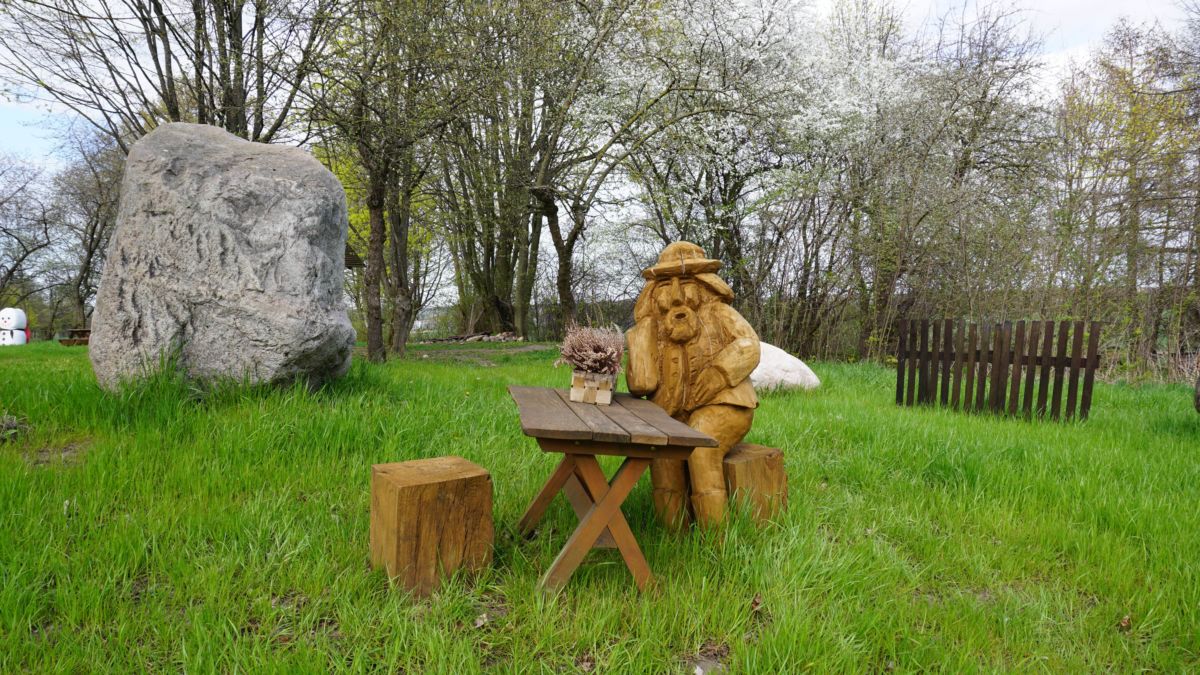
The interviewed people also shared their personal feelings related to their work. ‘Physically, I don’t spend much time here, I’m too sensitive. As soon as I come here, I start crying, so I leave as soon as possible, so no one sees all those tears. I help deliver various necessary things. I feel so sorry for them that I can’t cope with it, so my help is a bit different. I run some errands in the city, but I don’t stay here at the spot’ – commented Wiesława.
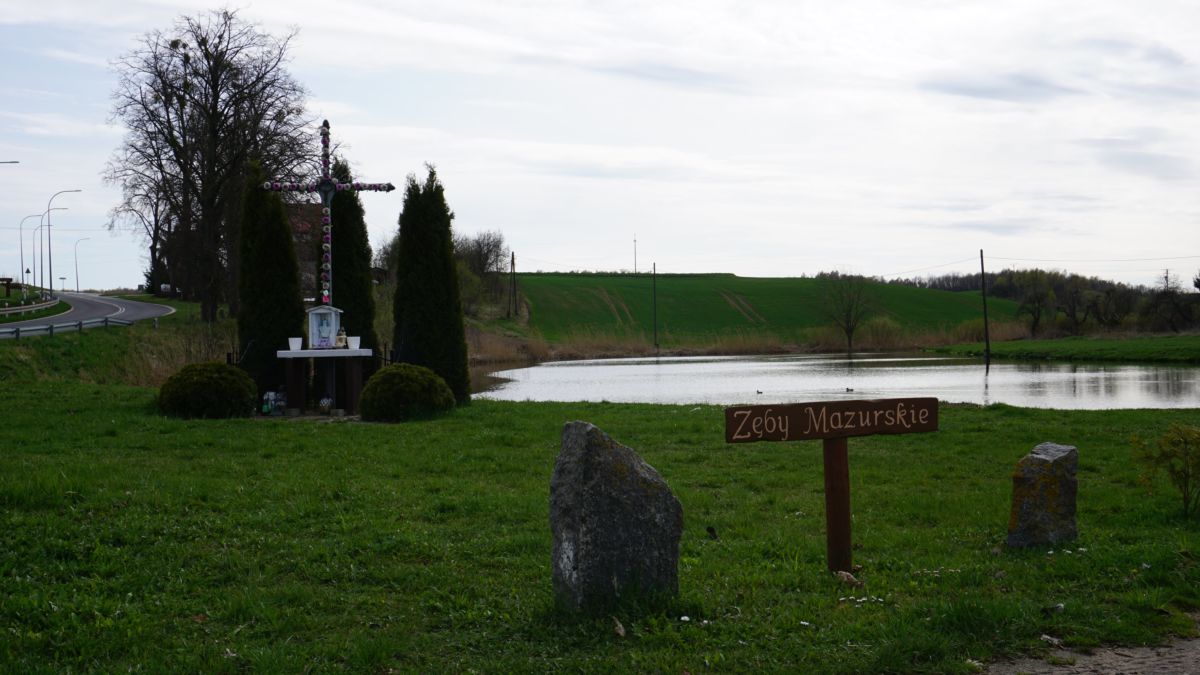
‘I have become close to our guests from Ukraine. All that helping has already become a part of my life. If they suddenly disappeared, my life would become a kind of empty. We try our best. We are in constant contact here and as Ms. Eva keeps repeating +nothing is impossible+, we are doing our best and we hope that it will continue this way’ – said another volunteer lady.
‘You’ve got to help others! Perhaps someday we will also be in need’ – replied shortly to the question of another woman taking care of the center, a pensioner, Mrs. Zofia.
When asked about how long people here intend to run the center, everyone responded unanimously – ‘For as long as it is needed, but hopefully as short as possible. Unfortunately, we do not see any radical optimism among people regarding the imminent end of this war’.
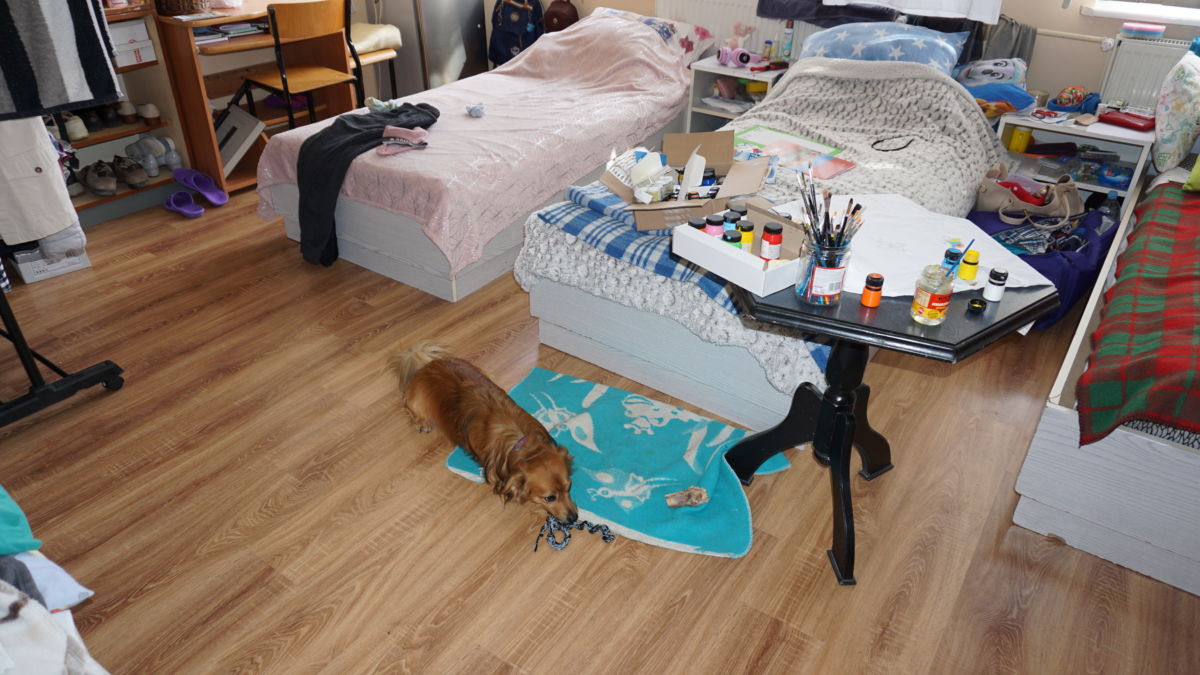
‘Recently I have come across such a saying that illustrates best how we should help here – +you ought to hug, but not strangle+ – added the mayor of Srokowo. We do not want to caress them to death, we try to create conditions for them where they have a little breath and a sense of independence. We try not to do everything for them, give them some room. I think they need it now – he assessed.
“Currently, I am after consultations with the high regional authority and the voivode, we are preparing a school auditorium in the facility for the refugees, so we will be able to temporarily accommodate another larger group, if necessary. We are now able to provide fifty places in emergency mode. The voivode provided beds, mattresses, and sleeping bags, and we are ready for different scenarios that may come up – the interlocutor assured.
For the reportage, the names were changed – PCPM.
Stanislaw Ajewski (PCPM)
Follow us on social media:
We publish current information on the aid provided by the PCPM Foundation on Twitter.
Foundation’s official profile on Instagram – @fundacjapcpm
Foundation’s official Facebook profile – Polish Center For International Aid
Support Ukraine aid with donations via pcpm.org.pl/ukraina